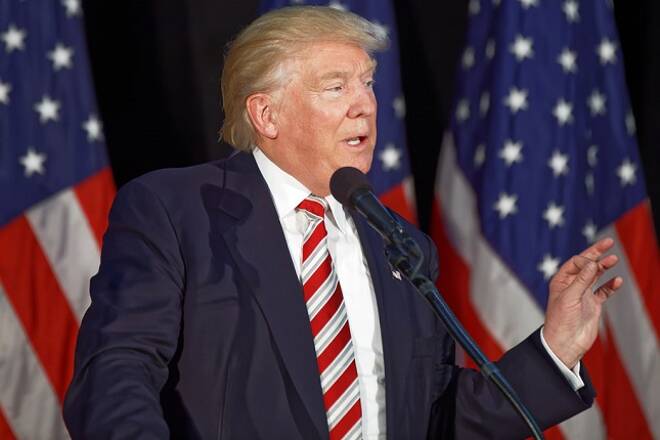Advertisement
Advertisement
Trump Drops TPP, but Expect More Favorable Bilateral Trade Agreements
By:
On January 23, in his first full day in office, President Donald Trump fulfilled one of his campaign promises with an executive action to pull the United
On January 23, in his first full day in office, President Donald Trump fulfilled one of his campaign promises with an executive action to pull the United States out of the Trans-Pacific-Partnership (TPP). “Great thing for the American worker, what we just did,” Trump said to reporters in the Oval Office as he signed the order.
What does this mean for the American economy and the American worker? We can only speculate because Congress had not yet approved the TPP. In my opinion, it probably would’ve been killed in Congress anyway because it was not garnering much support among Republicans and even Democrats.
To those who weren’t familiar with the TPP only Monday, it was a trade deal that would have slashed tariffs for American imports and exports with Canada, Mexico, Japan, Australia, New Zealand, Chile, Peru, Malaysia, Singapore, Vietnam Brunei – or just about every major country that touched the Pacific Ocean.
In exchange, for the tariff cuts in imports and exports, the U.S. had negotiated labor, environmental and intellectual property protections that major business wanted. However, the negotiations mentioned nothing about the issue of currency manipulation, a point that probably irritated Trump.
Trump’s critics argue that Trump is trying to reverse the trend of globalization. Big Businesses don’t like Trump’s decision because it undercuts their ability to sell to the massive amount of global consumers. Some even feel that Trump the decision to kill the TPP doesn’t mean that jobs will return to the U.S. anyway. Furthermore, they feel that goods are sold cheaper in the U.S. because they are made overseas, and that American companies also benefit from trade deals by making money selling their own products overseas.
Those who agree with Trump say that it’s time to develop a new trade policy that helps working families, not just multi-national corporations. Former Democratic Presidential candidate Bernie Sanders even went as far as to say, “If President Trump is serious about a new policy to help American workers then I would be delighted to work with him.”
At first glance, the decision to withdraw from the TPP sounded like Trump was trying to kill the U.S. trade presence in the Pacific. However, I don’t see it that way. I think Trump is banking on his negotiating ability to cut better deals with the individual countries rather than collectively.
The TPP probably would’ve led to more U.S. jobs moving overseas, but if Trump has his way, these jobs will stay in the U.S. and perhaps many that have left will return. This is essentially why he is putting pressure on CEO’s to keep or return jobs to the U.S. If he can reign in the corporations and keep jobs in the U.S. then strike numerous bilateral trade deals, as opposed to multilateral accords like the TPP, I believe it will benefit the U.S. economy.
The key to making these deals will be the clause to allow a 30-day termination notice. According to Trump, “If that particular country doesn’t treat us fairly, we send them a 30-day termination, notice of termination.”
In conclusion, Trump isn’t anti-trade, he’s pro-U.S. So if he can get the countries involved in the TPP to negotiate directly with the U.S. instead of collectively, then I think he believes he can cut a better trade deal with the country.
About the Author
James Hyerczykauthor
James Hyerczyk is a U.S. based seasoned technical analyst and educator with over 40 years of experience in market analysis and trading, specializing in chart patterns and price movement. He is the author of two books on technical analysis and has a background in both futures and stock markets.
Advertisement
